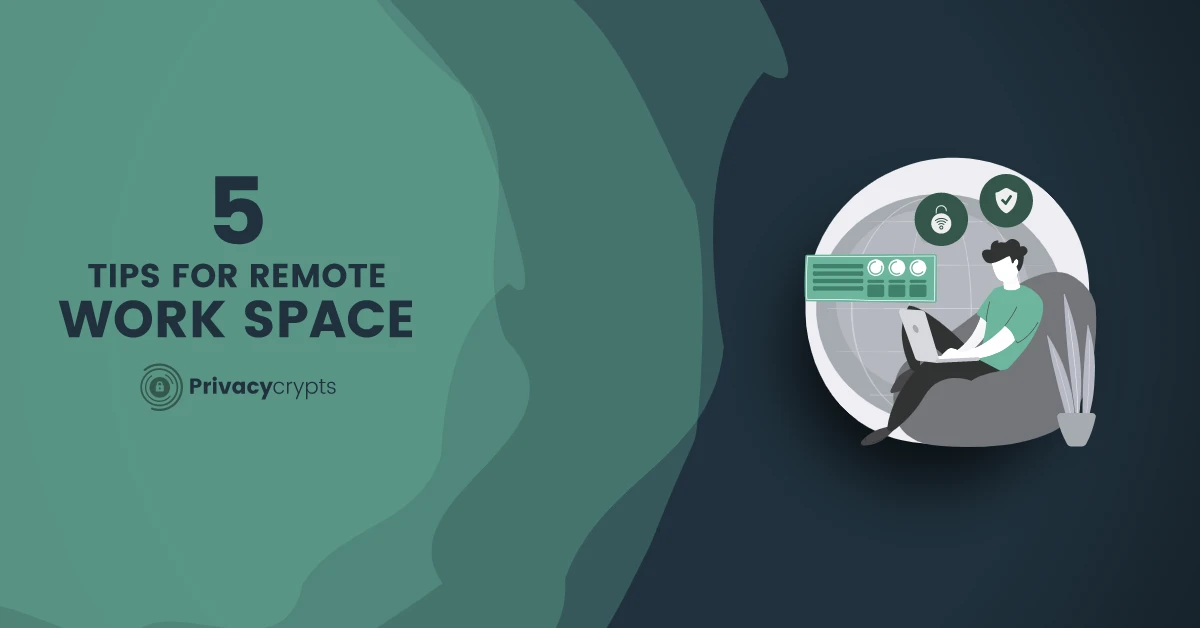Many people had to start working remotely during the pandemic. For some, the challenge was to readjust their schedule and find motivation while staying at home. A place we usually associate with leisure is not an ideal choice for work.
It is also worth noting that not everyone had the necessary work tools at home, and they had to take them from their employer or buy new tools.
Using a personal computer and using your company’s computer might not seem that different. However, some companies invest a lot in security, particularly if there is important data involved. So if an employee has to operate from their home network, more often than not, this network will lack the necessary security protocols.
Ultimately, there is not that much an individual can do to protect themselves from a powerful cyber-attack. However, it does not mean that they should not put in the effort.
This article will give you a few ideas on how to create a decent cybersecurity strategy with limited resources. And keep in mind that the more of these suggestions you implement, the more secure your devices will be.
How to maintain Cybersecurity with remote work?
Managing cybersecurity has become a hard task to muster especially with the rising frequency of cyber attacks. However, remaining vigilant and adopting the following secure online practices can help you attain the privacy you seek.
1. Virtual Private Networks
It is unlikely that you will need to use virtual private networks for work. More often than not, people rely on them for personal needs, particularly when they want to access geo-restricted content.
At the same time, a virtual private network can become a great workaround that solves potential privacy and security issues. Connecting to a different network, encrypting data, and switching a location leaves potential attackers scratching their heads because they will have a hard time tracking you.
2. Password Policies
Be sure to separate personal passwords from passwords you use for work profiles. The problem with online passwords is that so many people do not bother coming up with creative or difficult-to-crack combinations. Instead, they pick a random word and add a few numbers to it and use the combination as their password.
Moreover, it is difficult to remember multiple passwords simultaneously, which leads to using the same combination for virtually every account. Add the fact that a proper password policy requires regular password changing, and you have an obvious problem.
If memorizing difficult password combinations is too hard, take a different approach and use a password manager that stores the details. For instance, you can install a smartphone app that will allow you to access passwords with a master password. This way, you will have the information with you and can access it when you need to.
With that said, leaving everything to background antivirus software can only help so much. You should still run custom system scans and look for potentially corrupted files and other factors threatening your devices. And whenever antivirus detects such threats, remove them right away.
3. Regular Device Updates
Be it smartphones, tablets, or computers; one should get in the habit of prioritizing system updates. Whenever you notice that a new operating system is out, update it at your earliest convenience. You will usually get a notification that encourages you to download and install an update.
Keep in mind that system updates do more than just introducing the latest features and improving performance. Both minor and major OS updates can focus on cybersecurity because developers react to the most recent threats, and they push new and improved system versions that give more security to the users.
Therefore, you should take some time and install an update whenever it becomes available, even if it needs a while.
4. Interest in Cybersecurity News
Showing interest in cybersecurity news is another good way to prevent potential disasters. Perhaps a new threat is going around and wiping people’s data, but it is still too early to tell how to counter it? If so, you will know that backing up data should take priority.
You do not need to spend your whole day watching videos and reading articles about cybersecurity, but keeping up with the latest trends and noticing the most significant changes and other aspects of the industry should give you an upper hand when fighting against potential cyber problems when you have to work from home.
5. Antivirus Software
It is no secret that proper antivirus software is one of the cybersecurity strategy cornerstones. However, relying on a lackluster tool will not cut it. Just because a random antivirus is running in the background, it does not mean that it will protect the device.
Sure, there are some settings that you can tinker with. For example, you could get antivirus software that scans the system and focuses on specific cybersecurity threats. Some antiviruses also come with neat features, such as cleanup tools that remove redundant system junk. If you are interested in that, make sure to read on the topic more and explore available options.
Final words
The shift from office-based to remote work has opened up a variety of new attack vectors for cybercriminals. Amidst this, implementing secure practices and maintaining cyber-hygiene has become ever more crucial, otherwise, organisations may suffer from huge financial, reputational, and data losses due to cyber-attacks.
